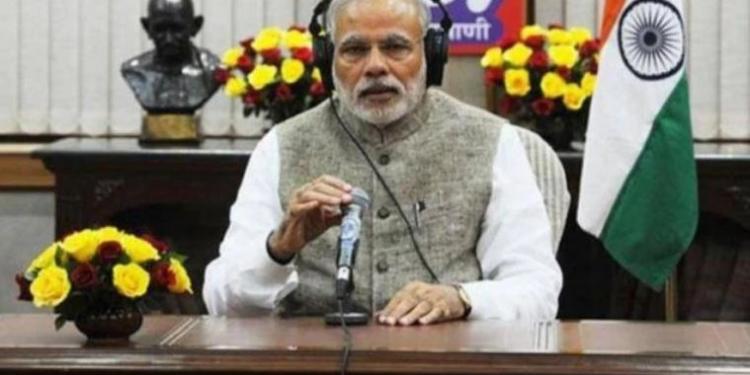Prime Minister Narendra Modi is evidently one of the most charismatic leaders in the world. His energetic speeches have been successful in pulling crowds from even the remotest corners in India out of their homes. His addresses on the All India Radio ‘Mann Ki Baat’ have been successful, not only in engaging people of every age, region or other but have also set an example by interacting with 1.3 billion Indians directly on a multitude of issues. Opposition has at times laid charges that Mann Ki Baat was a mere publicity stunt and one way communication. However, these charges were laid to rest with a study on the influence of Mann Ki Baat. The study was done by Prof Pulak Ghosh of IIM-Bangalore, V. Kamakoti of IIT Madras, and Bhuvanesh Pareek from IIM Indore based on data analytics, reported Sunday Guardian Live written by R. Jayaprakash. The study’s findings have been mentioned in the Sunday Guardian Live report and according to the findings; Mann Ki Baat has become the biggest online influencer in India.
Mann Ki Baat not only generated huge interest among the listeners but also influenced the discussions around the topics mentioned by the PM in the show. The interest in the mentioned topics was 5000 times higher than average and online searches for the topics mentioned by PM Modi grew four times, the report reveals. On the influence of Mann Ki Baat, Sunday Guardian quotes Prof Pulak Ghosh, “A couple of episodes after Mann Ki Baat, I witnessed euphoria among people and they started talking a lot about this programme. I felt this programme was impacting the society at large and I felt I should quantify it to simply find out the success of it. Over 50 episodes, the Prime Minister’s outreach can be catagorised into three buckets—personalities-based where such personalities have brought change in society, social awareness and government programmes. The radio programme has been a great achiever touching all generations.”
As such, the impact of Mann Ki Baat in shaping the public discourse has been immense. Realizing the potential of this medium, PM Modi has taken up issues which usually go under the radar and for which public awareness is needed. PM Modi has continued this aspect of the show in his second term as well.
In his first Mann Ki Baat after winning the historic mandate, PM Modi talked about a multitude of subjects. However, water conservation was one of the main points of this Mann Ki Baat.
In his address PM Narendra Modi, stressed on the collective efforts of the Indian Society towards the Swacch Bharat Abhiyan, and said “ When we come together and work hard, then most difficult tasks can be accomplished successfully.” He further and draws a parallel between the efforts towards Swacch Bahart and water conservation. “Like swachhata, let us make water conservation a jan andolan (people’s movement),” he said.
The prime minister also talked about the current situation of rainwater harvesting system and the water crisis in many regions of India and said that only 8% of the rain water in the whole year is harvested in our country. “Water scarcity affects many parts of the country every year. You will be surprised that only 8% of the water received from rains in the entire year is harvested in our country. Now the time has come to find a solution to this problem. I believe, like the other problems on hand, we can also solve this predicament by the participation of the people,” he said.
PM Modi also emphasized the creation of Jal Shakti Ministry and called citizens to suggest information and work done on water conservation using #JanShakti4JalShakti on social media platforms. He said it is important to spread awareness about conserving every drop of water.
“I would like to make 3 requests to all, including eminent people from all walks of life to create awareness on water conservation. Share info of traditional methods of water conservation. If you know about any individuals or NGOs working on water, do share about them so that we can create a database of those who can help when need arises,” Modi said.
“There cannot be one formula across the country to save water. Share knowledge of traditional methods of water conservation. Use #JanShakti4JalShakti to upload your content relating to water conservation.”
According to the state run state-run India Meteorological Department this year since the start of the season on June 1, the country has received around 38% lesser rainfall than average.
PM Modi’s focus on water conservation efforts in Mann Ki Baat will lead to more awareness on the issue and is likely to lead to fruitful results.



























